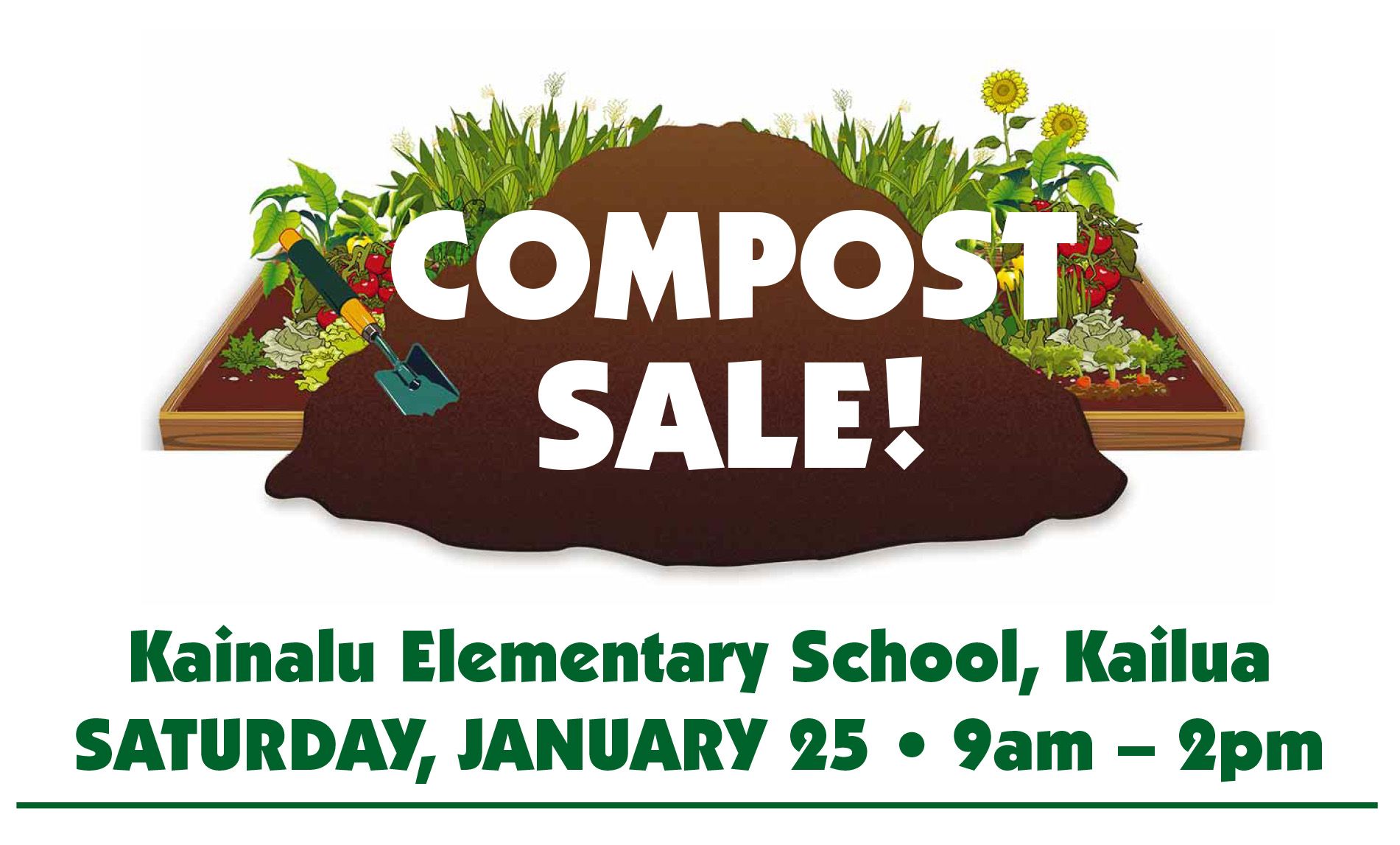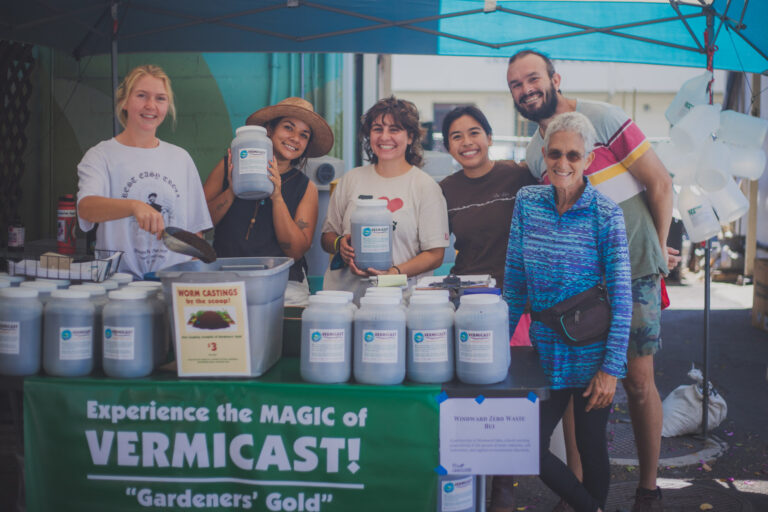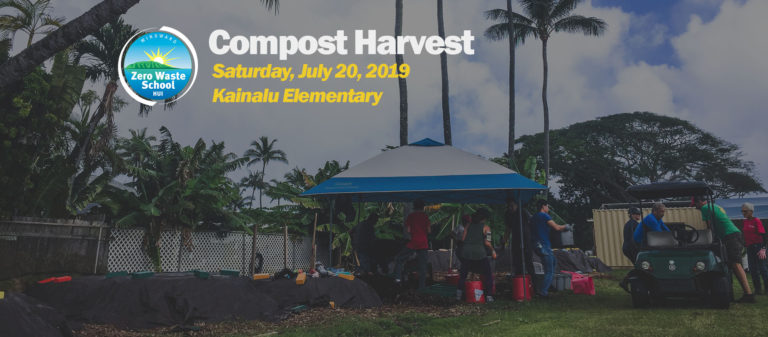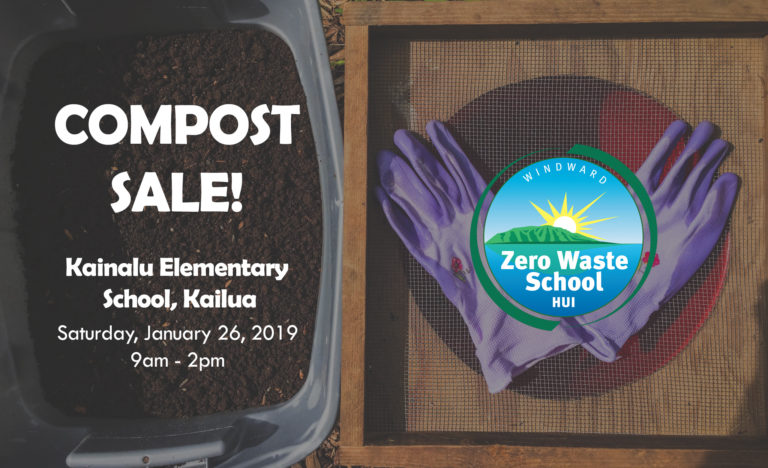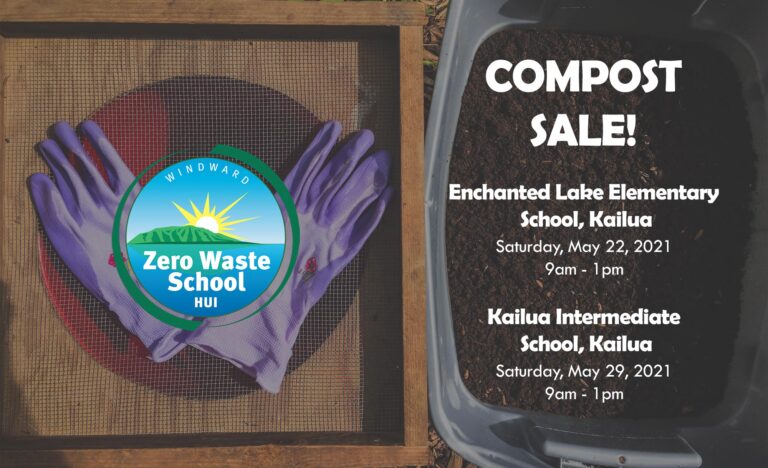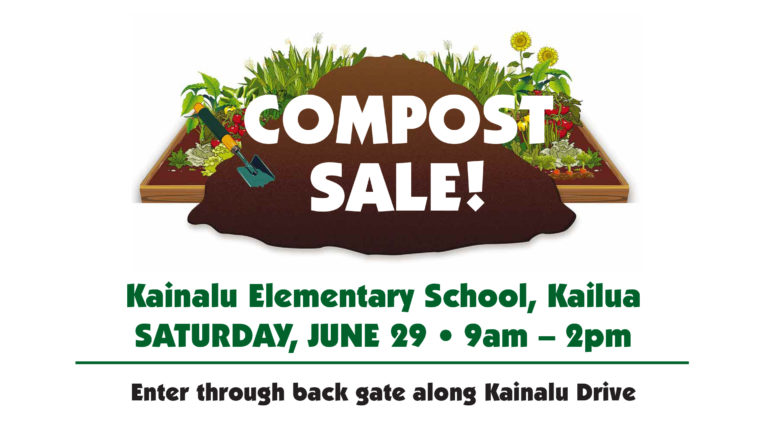Compost Sale, Saturday, 1/25
Kainalu Elementary School, Kailua
SATURDAY, JANUARY 25 • 9 am – 2 pm
Enter through the back gate along Kainalu Drive
Please help us to spread the word by posting on your Facebook and other social networks. Please talk it up among your friends, co-workers, and neighbors. Click here for the informational flier.
With daily cooperation and assistance from 2,167 students at five Kailua schools, our Resource Recovery staff collected and processed 110,318 pounds of food and milk waste in 2019 – that’s 55.2 tons! Ninety percent was composted in hot compost piles; ten percent was processed by our juicy, robust, voracious wormies.
This effort yielded over 50 cubic yards of dark, nutrient-rich compost, and 1,250 pounds of valuable vermicast, a.k.a. Gardeners’ Gold. We’ve got abundance a’plenty to share with our community…
What happens when you amend your soil with our premium organic products?
• Adds nutrients to promote plant growth & vigor
• Increases moisture retention
• Mitigates soil erosion
• Supports biodiversity
• Sequesters carbon
…and creates magnificent gardens! As Ka’ohao STEM & 6th grade teacher, Mr. Sawyer, always says, “Gardening SURE IS FUN when you have good soil.”
$10 / 5-gallon bucketful
All proceeds benefit the participating schools. The Windward Zero Waste School Hui is proud to share with YOU the very BEST compost in the land! Compost is priced at $10 for a 5-gallon bucketful (approximately one cubic foot). Please bring your own container(s) if you have them – we have buckets on hand if you don’t.
Worm castings (vermicast) also known as “Gardeners’ Gold” available while supplies last, priced at $15 for a 5-pound container.
Contact us for more information.
Ka’ohao Public Charter, Kainalu Elementary, Ka’elepulu Elementary, Enchanted Lake Elementary, and Kailua Intermediate School comprise a partnership of Windward schools working cooperatively in the pursuit of waste reduction, soil restoration, and applied environmental education. All members participate annually in the U.S. EPA’s Food Recovery Challenge and adhere to strict, safe, standardized operational procedures.
